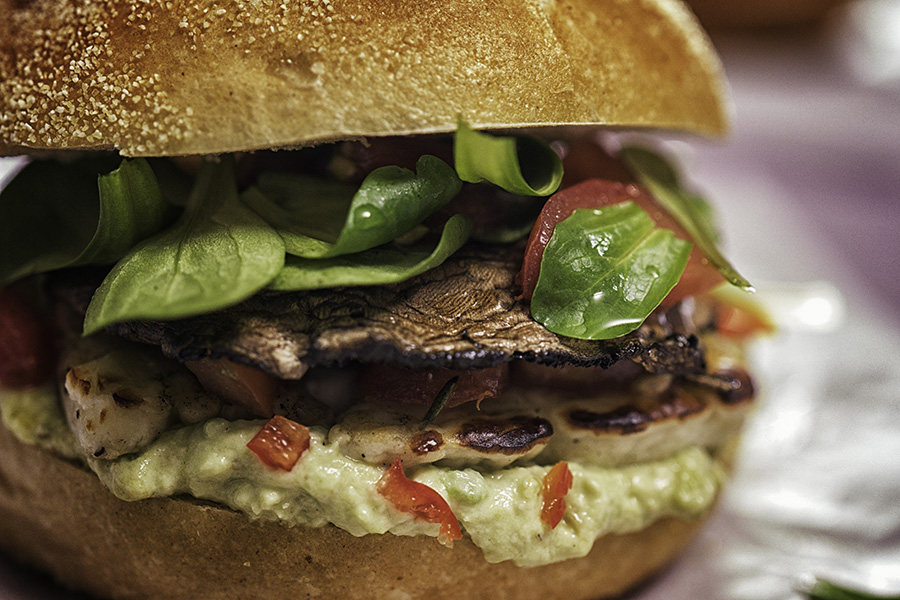Where’s the Beef … Substitute?

Burgers – they’re delicious, but not so good for your health – or for the planet.
In fact, several major health organizations, including the American Cancer Society, American Heart Association and the World Health Organization are telling us to eat less red meat.
So, what’s a carnivore to do?
Enter meat substitutes, an ever-evolving menu of options for those seeking a plant-based version of the All-American hamburger or chicken nugget, for that matter. Stroll through the frozen food or produce aisle and you’re confronted with a myriad of non-meat choices. So many, you may not know where to begin to get the most bang for your buck and your diet. Karina Kaboudi has answers. Besides being a registered dietitian and nutritionist with the University of Miami Health System Clinical Nutrition department, she says she has tried just about every veggie burger on the market.
To soy or not to soy?
At first glance, soy seems a convenient, affordable alternative to animal-based protein. That is, until you hear about isoflavones, plant-derived phytoestrogens (naturally occurring hormones found in plants) in soy products. They were once thought to disrupt hormones and possibly cause certain cancers. However, according to Kaboudi, “There’s no good scientific evidence that it disrupts hormones. The studies were conducted based on consumption levels that are the equivalent of eating three pounds of tofu a day.”
While one might argue that no one in their right mind would binge on tofu, soy is in so many products, Kaboudi urges moderation. “Soy contains phytates which interfere with mineral absorption.” When adding soy foods to your diet, she recommends eating tempeh, miso, or natto. “There’s good evidence that these fermented soy products are easier to digest and more nutritious than non-fermented products like tofu or soybean oil.” The final 411 on soy? “It’s a great transition food if you’re trying to eat less meat, but shouldn’t be the basis of your diet.”
Mystery meat ingredients
We all know this scenario: You’re at the grocery store, in search of a quick, nutritious dinner. Why do so many food labels contain more fine print than your homeowner’s insurance policy? Like it or not, label reading is a necessary evil of modern life. Just because a food is vegan or vegetarian doesn’t mean it’s good for you. With so many processed foods on the market, (including meat substitutes), it’s a case of buyer beware.
Some veggie burgers contain up to 17 grams of fat from coconut oil.
Here’s how to life hack the labels. “The fewer and more recognizable the ingredients, the better. Avoid artificial chemicals, colorings and vague ingredients such as ‘natural flavorings’,” Kaboudi says, adding, “Textured wheat protein is a common meat substitute, but it’s highly processed. I wouldn’t consider it healthy.” Likewise, some veggie burgers contain up to 17 grams of fat from coconut oil. Look for burgers made from whole foods, such as beans, lentils or pea protein. Or elevate your eating habits with a marinated, roasted portabella mushroom burger. The firm texture and savory taste make a great stand-in for beef.
Plentiful protein
Deciding to eat more plant-based foods is not without challenges. One of the most unnecessary is the proverbial question: “Where do you get your protein?” Here’s a news flash for doubters: plants contain protein. A few that pack the greatest protein punch include:
- Broccoli
- Brussels sprouts
- Sweet potatoes
- Legumes
- Mushrooms
- Nuts and seeds
Here are two powerhouses you may not have considered: spirulina (8 grams of protein per 2 tablespoons) and quinoa (about 8 grams of protein per cup). Kaboudi also suggests sprinkling chia or hemp seeds over oatmeal, salads, smoothies or soups for an extra protein boost. “If you’re eating a lot of legumes, vegetables and nuts, you’re getting a lot of protein,” she explains.
A marathon, not a sprint
Adopting healthy habits takes time. “Start slow and little by little, add more whole foods into your diet. Try Meatless Mondays, then move up to two or more days a week of meat-free eating. You’re still making a difference in your health and the environment,”Kaboudi says.
Nancy Moreland is a regular contributor to UMiami Health News. She has written for several major health care systems and the Centers for Disease Control and Prevention. Her writing also appears in the Chicago Tribune.
Tags: Karina Kaboudi, meat alternative, meatless meals, Nutrition, soy, vegetarian
